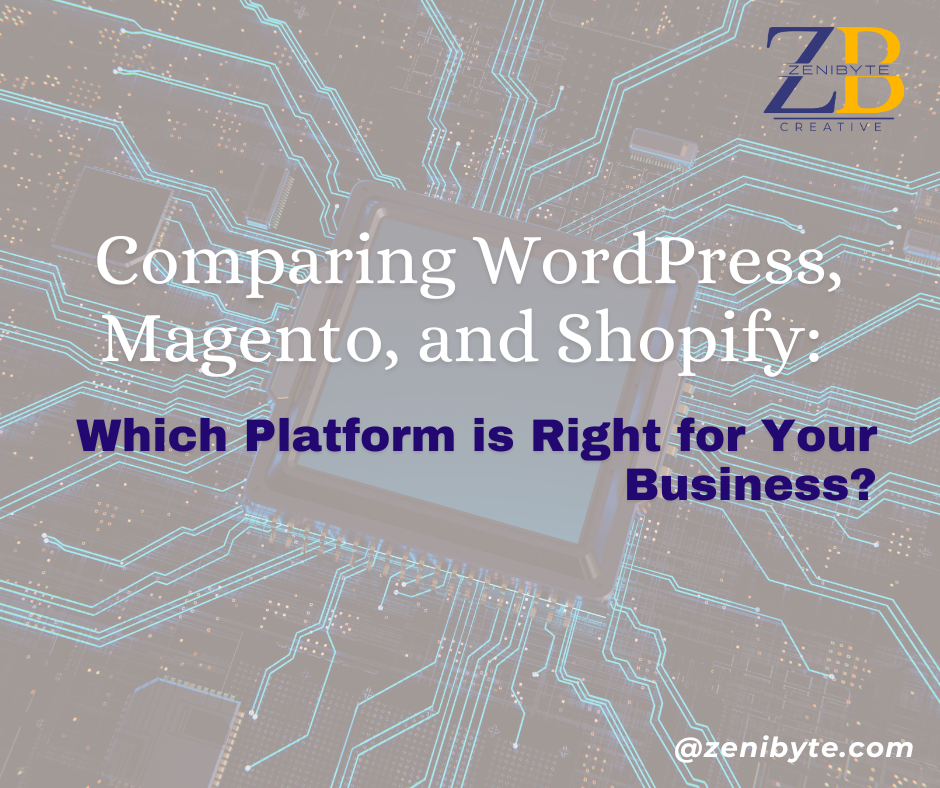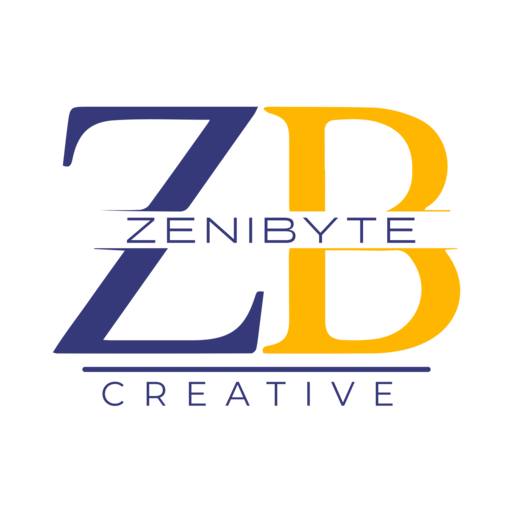


Zenibyte Creative
Comparing WordPress Magento and Shopify - Which Platform is Right for Your Business
WordPress with WooCommerce
Overview
WordPress is a versatile content management system (CMS) that, when paired with the WooCommerce plugin, transforms into a powerful eCommerce platform.
Pros:
- Flexibility and Customisation: WordPress offers unparalleled flexibility with thousands of themes and plugins. You can customise your store to meet very specific needs.
- Cost-Effective: WordPress itself is free, and WooCommerce is also free. Costs come from hosting, themes, and additional plugins, which can be managed to fit various budgets.
- SEO-Friendly: WordPress is renowned for its strong SEO capabilities, aided by plugins like Yoast SEO, which can help your store rank higher in search engine results.
Cons:
- Complexity: Setting up and managing a WordPress/WooCommerce store can be complex, especially for beginners. It often requires more technical knowledge than other platforms.
- Maintenance: Regular updates and maintenance are necessary to keep your site secure and running smoothly.
Magento
Overview
Magento is a robust eCommerce platform designed for businesses looking for extensive customisation and scalability.
Pros:
- Scalability: Magento is highly scalable, making it suitable for both small businesses and large enterprises. It can handle extensive catalogs and high traffic volumes.
- Customisation: With Magento, you have full control over your store’s functionality and appearance. It’s highly customisable, allowing for unique and tailored eCommerce experiences.
- Advanced Features: Magento offers advanced features out of the box, such as multi-store management, advanced shipping, and customer segmentation.
Cons:
- Cost: Magento can be expensive. While the open-source version (Magento Open Source) is free, the enterprise version (Magento Commerce) comes with a significant price tag.
- Technical Expertise Required: Magento has a steep learning curve and often requires experienced developers to set up and maintain the store.
Shopify
Overview
Shopify is a user-friendly eCommerce platform that allows businesses to quickly set up and manage an online store without needing deep technical expertise.
Pros
- Ease of Use: Shopify is known for its simplicity and ease of use. It provides a straightforward setup process and an intuitive interface.
- All-in-One Solution: Shopify handles hosting, security, and
maintenance, freeing you from the technical aspects of running an online store.
- 24/7 Support: Shopify offers reliable customer support, available 24/7 to help with any issues you might encounter.
Cons
- Limited Customisation: While
Shopify offers numerous themes and apps, it is less customiseable compared to WordPress and Magento.
- Transaction Fees: Shopify charges transaction fees unless you use their payment gateway, Shopify Payments.
- Monthly Fees: Shopify operates on a subscription model, with monthly fees that can add up, especially if you use additional apps and features.
Which Platform is Right for You?
Choosing the right platform depends on your business needs, budget, and technical capabilities. Here’s a quick guide:
- WordPress with WooCommerce is ideal for businesses looking for flexibility and customisation at a lower cost but are willing to handle the technical aspects and maintenance.
- Magento is perfect for larger businesses that need advanced features and scalability and have the budget and technical expertise to manage it.
- Shopify is the best choice for those who prioritise ease of use, quick setup, and don’t mind paying for a seamless, all-in-one solution.
Conclusion
At Zenibyte, we understand that every business has unique requirements. Our team of experts is here to help you navigate the complexities of eCommerce platforms and choose the one that best aligns with your goals. Visit us at www.zenibyte.com to learn more about how we can assist you in building a successful online store.
Contact Us
Zenibyte Creative
Zenibyte is a leading web and mobile app development company in the UK.